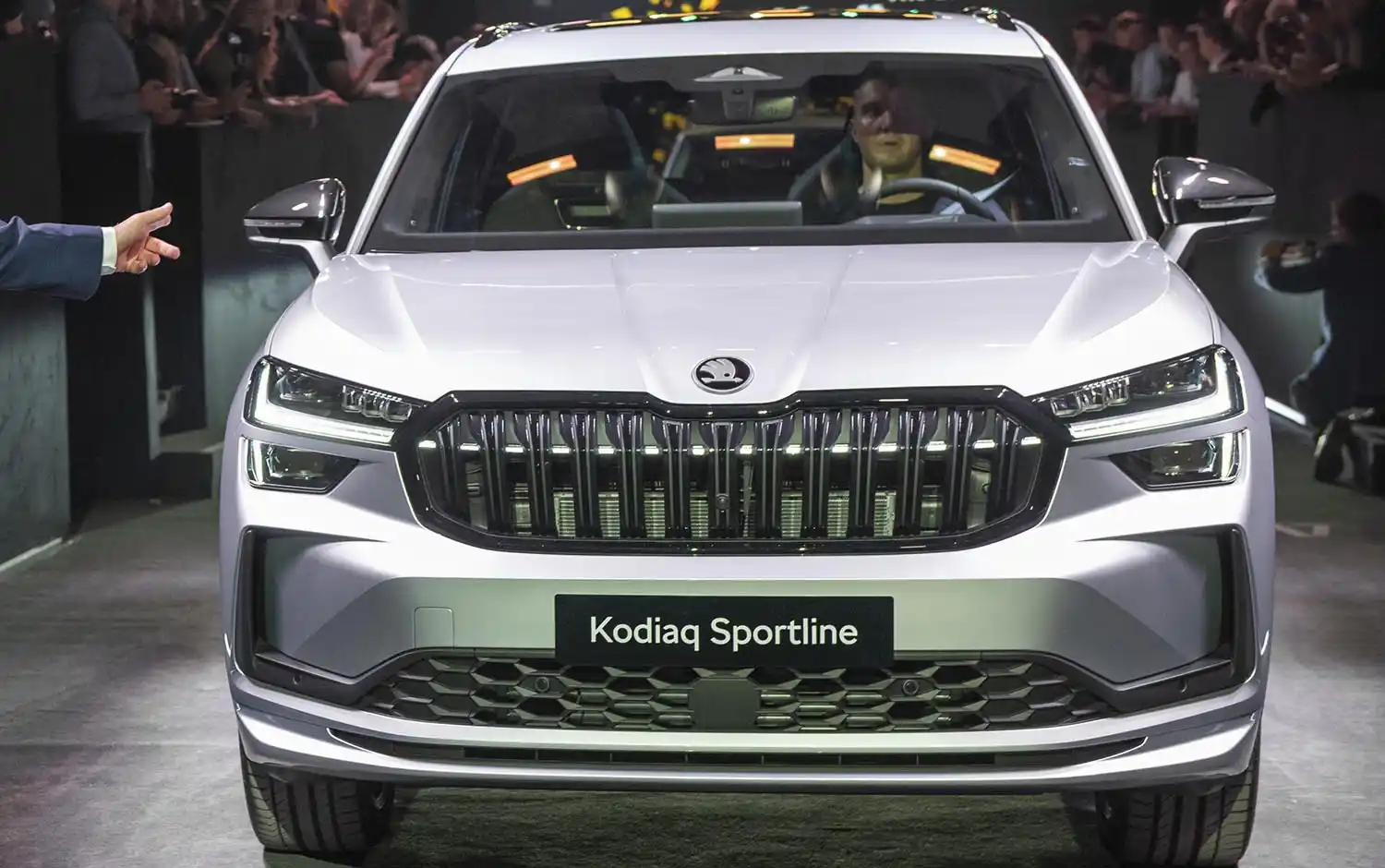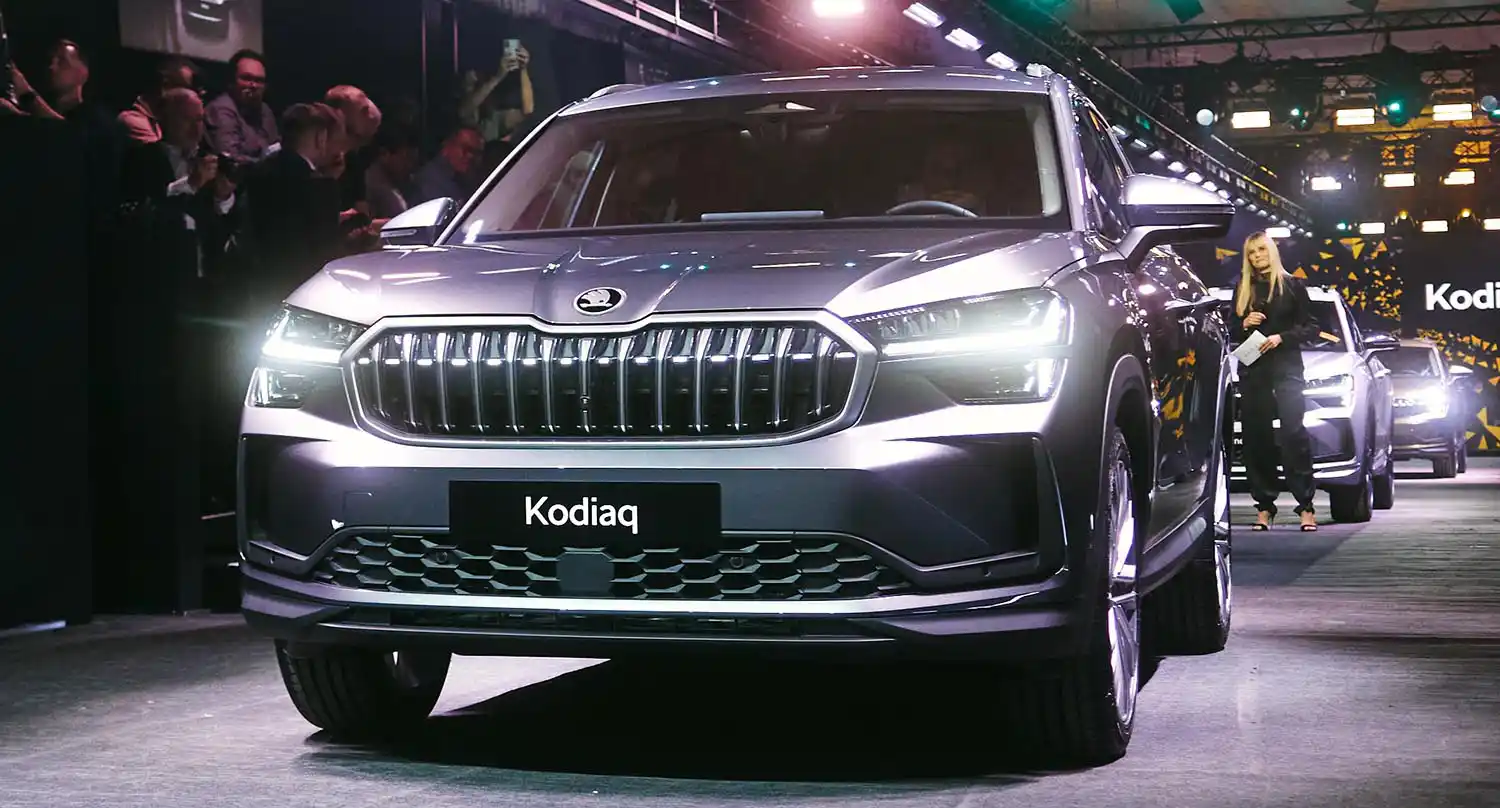
Škoda Auto announces the launch of series production of the second-generation Kodiaq, its SUV flagship model, at the plant in Kvasiny, Czech Republic. In preparation, the company has made considerable investments into modernising both the production line and welding shop. By transferring the production of the new-generation Superb from Kvasiny to Bratislava, Slovakia, the Czech carmaker has created additional capacity at Kvasiny to manufacture the successful Kodiaq and Karoq SUV models.
Andreas Dick, Škoda Auto Board Member for Production and Logistics, says: “It was with the Kodiaq that we began our SUV campaign began back in 2016. The fact that this successful model is entering its second generation today is a very special event for the entire team. Countless hours have gone into the thorough preparations for the production launch. And by investing 49 million euros into modernising the manufacturing facilities, we have made a substantial contribution to future-proofing production at our Kvasiny plant. My heartfelt thanks goes to everyone involved. Their expertise and dedication are the reasons we can now write the next chapter in the success story of our flagship SUV.”

Investment of 49 million euros, producing up to 410 Kodiaq SUVs a day
The new Kodiaq will continue to be produced on its original production line. In a strategic move to future-proof the Kvasiny plant, Škoda Auto has invested 49 million euros in modernising the production line and welding shop. This investment also encompasses preparations for the production of the new Kodiaq iV, featuring a plug-in hybrid drivetrain. Key enhancements during the production line conversion include updates to manipulators, chassis assembly, conveyor technologies, and the refinement of robot functions for applying window glue.
Until recently, the production line at the Kvasiny plant was also used for the Škoda Superb. In a strategic move to increase SUV production capacity, Superb production has now been relocated to the Volkswagen plant in Bratislava, coinciding with the launch of its fourth generation. This effectively frees up capacity at Kvasiny, enabling the plant to produce an additional 150,000 units annually of the Karoq and Kodiaq SUV models. Consequently, the plant is primed to build up to 410 Kodiaqs a day.

The Škoda Kodiaq’s success story
Škoda Auto began its SUV campaign with the world premiere of the Kodiaq in September 2016. This milestone was followed by the launch of the compact Karoq in 2017, the Kamiq city SUV in 2019, and the all-electric Enyaq SUV in 2021. The Kodiaq RS, introduced in autumn 2018, marked the first SUV in Škoda’s sporty RS family.
To date, the combined efforts of Škoda’s manufacturing facilities in the Czech Republic, Ukraine, China, and – until early 2022 – Russia, have resulted in over 870,000 units of the first-generation Kodiaq. These vehicles have reached customers across 60 markets around the world. The model has enjoyed widespread popularity among customers and journalists alike, earning more than 40 prestigious international awards for the first-generation of this large Škoda SUV.
Škoda Auto unveiled the second-generation Kodiaq in Berlin on 4 October. This presentation showcased the manufacturer’s advancements in sustainability and efficiency, as well as introducing the first elements of its new Modern Solid design language. The new Kodiaq reflects Škoda’s traditional emphasis on spaciousness, incorporating sustainable materials and innovative elements like Škoda Smart Dials, while the exterior boasts the latest generation of LED matrix headlights. The vehicle offers five different powertrain options, ranging from 110 kW (150 hp) to 150 kW (204 hp), with the higher-tier engines equipped with all-wheel drive as standard. Additionally, the Kodiaq is now available in a plug-in hybrid variant, offering an electric range of over 100 kilometres – a first for the series.
